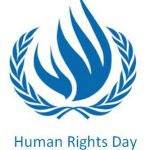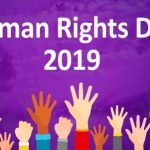A court in Moscow granted a plea to close down another famous human rights organization on Wednesday, amid a widening assault on Russian rights groups, independent media, and opposition supporters.
The decision to close the Memorial Human Rights Center by the Moscow City Court came a day after Russia’s Supreme Court revoked the legal status of its sister organization, Memorial, a human rights group that garnered international renown for its studies of political persecution in the Soviet Union.
Both organizations were previously designated as “foreign agents” by Russian authorities, a classification that brings further government monitoring and carries strong negative implications.
Prosecutors filed a petition to close the groups last month, claiming they had regularly broken legislation requiring them to declare themselves as foreign agents in all information they created.
The claims were dismissed as politically motivated by Memorial and the Memorial Human Rights Center.
The decision to close them sparked significant public indignation, with supporters flocking to courthouses despite the bitter cold on Tuesday and Wednesday.
Both Memorial organizations have committed to contest the verdicts that have resulted in their legal standing being revoked. Memorial promised to “find legitimate means to continue our work” in a statement released Tuesday.
The decision to close Memorial on Tuesday was denounced by a number of senior US and European officials as an attack on Russia’s civil society.
Amnesty International called Wednesday’s ruling to close the Memorial Human Rights Center “yet another blow to Russia’s civil society movement after years of relentless attacks.”
On Tuesday, the mayor of Moscow issued an eviction notice to yet another major human rights organization. Officials handed the Civic Assistance Committee, which assists refugees and migrants in Russia, a paper voiding the agreement allowing the organization to use the facility without compensation and ordering it to depart within a month, according to the organization.
“The Civic Assistance will resist (this),” stated the organization’s chairwoman, Svetlana Gannushkina.
In recent years, a number of Russian nongovernmental groups have moved to operate as informal companies in order to avoid being affected by restrictive regulations.
A court in Moscow granted a plea to close down another famous human rights organization on Wednesday, amid a widening assault on Russian rights groups, independent media, and opposition supporters.
The decision to close the Memorial Human Rights Center by the Moscow City Court came a day after Russia’s Supreme Court revoked the legal status of its sister organization, Memorial, a human rights group that garnered international renown for its studies of political persecution in the Soviet Union.
Both organizations were previously designated as “foreign agents” by Russian authorities, a classification that brings further government monitoring and carries strong negative implications.
Prosecutors filed a petition to close the groups last month, claiming they had regularly broken legislation requiring them to declare themselves as foreign agents in all information they created.
The claims were dismissed as politically motivated by Memorial and the Memorial Human Rights Center.
The decision to close them sparked significant public indignation, with supporters flocking to courthouses despite the bitter cold on Tuesday and Wednesday.
Both Memorial organizations have committed to contest the verdicts that have resulted in their legal standing being revoked. Memorial promised to “find legitimate means to continue our work” in a statement released Tuesday.
The decision to close Memorial on Tuesday was denounced by a number of senior US and European officials as an attack on Russia’s civil society.
Amnesty International called Wednesday’s ruling to close the Memorial Human Rights Center “yet another blow to Russia’s civil society movement after years of relentless attacks.”
On Tuesday, the mayor of Moscow issued an eviction notice to yet another major human rights organization. Officials handed the Civic Assistance Committee, which assists refugees and migrants in Russia, a paper voiding the agreement allowing the organization to use the facility without compensation and ordering it to depart within a month, according to the organization.
“The Civic Assistance will resist (this),” stated the organization’s chairwoman, Svetlana Gannushkina.
In recent years, a number of Russian nongovernmental groups have moved to operate as informal companies in order to avoid being affected by restrictive regulations.
A court in Moscow granted a plea to close down another famous human rights organization on Wednesday, amid a widening assault on Russian rights groups, independent media, and opposition supporters.
The decision to close the Memorial Human Rights Center by the Moscow City Court came a day after Russia’s Supreme Court revoked the legal status of its sister organization, Memorial, a human rights group that garnered international renown for its studies of political persecution in the Soviet Union.
Both organizations were previously designated as “foreign agents” by Russian authorities, a classification that brings further government monitoring and carries strong negative implications.
Prosecutors filed a petition to close the groups last month, claiming they had regularly broken legislation requiring them to declare themselves as foreign agents in all information they created.
The claims were dismissed as politically motivated by Memorial and the Memorial Human Rights Center.
The decision to close them sparked significant public indignation, with supporters flocking to courthouses despite the bitter cold on Tuesday and Wednesday.
Both Memorial organizations have committed to contest the verdicts that have resulted in their legal standing being revoked. Memorial promised to “find legitimate means to continue our work” in a statement released Tuesday.
The decision to close Memorial on Tuesday was denounced by a number of senior US and European officials as an attack on Russia’s civil society.
Amnesty International called Wednesday’s ruling to close the Memorial Human Rights Center “yet another blow to Russia’s civil society movement after years of relentless attacks.”
On Tuesday, the mayor of Moscow issued an eviction notice to yet another major human rights organization. Officials handed the Civic Assistance Committee, which assists refugees and migrants in Russia, a paper voiding the agreement allowing the organization to use the facility without compensation and ordering it to depart within a month, according to the organization.
“The Civic Assistance will resist (this),” stated the organization’s chairwoman, Svetlana Gannushkina.
In recent years, a number of Russian nongovernmental groups have moved to operate as informal companies in order to avoid being affected by restrictive regulations.
A court in Moscow granted a plea to close down another famous human rights organization on Wednesday, amid a widening assault on Russian rights groups, independent media, and opposition supporters.
The decision to close the Memorial Human Rights Center by the Moscow City Court came a day after Russia’s Supreme Court revoked the legal status of its sister organization, Memorial, a human rights group that garnered international renown for its studies of political persecution in the Soviet Union.
Both organizations were previously designated as “foreign agents” by Russian authorities, a classification that brings further government monitoring and carries strong negative implications.
Prosecutors filed a petition to close the groups last month, claiming they had regularly broken legislation requiring them to declare themselves as foreign agents in all information they created.
The claims were dismissed as politically motivated by Memorial and the Memorial Human Rights Center.
The decision to close them sparked significant public indignation, with supporters flocking to courthouses despite the bitter cold on Tuesday and Wednesday.
Both Memorial organizations have committed to contest the verdicts that have resulted in their legal standing being revoked. Memorial promised to “find legitimate means to continue our work” in a statement released Tuesday.
The decision to close Memorial on Tuesday was denounced by a number of senior US and European officials as an attack on Russia’s civil society.
Amnesty International called Wednesday’s ruling to close the Memorial Human Rights Center “yet another blow to Russia’s civil society movement after years of relentless attacks.”
On Tuesday, the mayor of Moscow issued an eviction notice to yet another major human rights organization. Officials handed the Civic Assistance Committee, which assists refugees and migrants in Russia, a paper voiding the agreement allowing the organization to use the facility without compensation and ordering it to depart within a month, according to the organization.
“The Civic Assistance will resist (this),” stated the organization’s chairwoman, Svetlana Gannushkina.
In recent years, a number of Russian nongovernmental groups have moved to operate as informal companies in order to avoid being affected by restrictive regulations.
A court in Moscow granted a plea to close down another famous human rights organization on Wednesday, amid a widening assault on Russian rights groups, independent media, and opposition supporters.
The decision to close the Memorial Human Rights Center by the Moscow City Court came a day after Russia’s Supreme Court revoked the legal status of its sister organization, Memorial, a human rights group that garnered international renown for its studies of political persecution in the Soviet Union.
Both organizations were previously designated as “foreign agents” by Russian authorities, a classification that brings further government monitoring and carries strong negative implications.
Prosecutors filed a petition to close the groups last month, claiming they had regularly broken legislation requiring them to declare themselves as foreign agents in all information they created.
The claims were dismissed as politically motivated by Memorial and the Memorial Human Rights Center.
The decision to close them sparked significant public indignation, with supporters flocking to courthouses despite the bitter cold on Tuesday and Wednesday.
Both Memorial organizations have committed to contest the verdicts that have resulted in their legal standing being revoked. Memorial promised to “find legitimate means to continue our work” in a statement released Tuesday.
The decision to close Memorial on Tuesday was denounced by a number of senior US and European officials as an attack on Russia’s civil society.
Amnesty International called Wednesday’s ruling to close the Memorial Human Rights Center “yet another blow to Russia’s civil society movement after years of relentless attacks.”
On Tuesday, the mayor of Moscow issued an eviction notice to yet another major human rights organization. Officials handed the Civic Assistance Committee, which assists refugees and migrants in Russia, a paper voiding the agreement allowing the organization to use the facility without compensation and ordering it to depart within a month, according to the organization.
“The Civic Assistance will resist (this),” stated the organization’s chairwoman, Svetlana Gannushkina.
In recent years, a number of Russian nongovernmental groups have moved to operate as informal companies in order to avoid being affected by restrictive regulations.
A court in Moscow granted a plea to close down another famous human rights organization on Wednesday, amid a widening assault on Russian rights groups, independent media, and opposition supporters.
The decision to close the Memorial Human Rights Center by the Moscow City Court came a day after Russia’s Supreme Court revoked the legal status of its sister organization, Memorial, a human rights group that garnered international renown for its studies of political persecution in the Soviet Union.
Both organizations were previously designated as “foreign agents” by Russian authorities, a classification that brings further government monitoring and carries strong negative implications.
Prosecutors filed a petition to close the groups last month, claiming they had regularly broken legislation requiring them to declare themselves as foreign agents in all information they created.
The claims were dismissed as politically motivated by Memorial and the Memorial Human Rights Center.
The decision to close them sparked significant public indignation, with supporters flocking to courthouses despite the bitter cold on Tuesday and Wednesday.
Both Memorial organizations have committed to contest the verdicts that have resulted in their legal standing being revoked. Memorial promised to “find legitimate means to continue our work” in a statement released Tuesday.
The decision to close Memorial on Tuesday was denounced by a number of senior US and European officials as an attack on Russia’s civil society.
Amnesty International called Wednesday’s ruling to close the Memorial Human Rights Center “yet another blow to Russia’s civil society movement after years of relentless attacks.”
On Tuesday, the mayor of Moscow issued an eviction notice to yet another major human rights organization. Officials handed the Civic Assistance Committee, which assists refugees and migrants in Russia, a paper voiding the agreement allowing the organization to use the facility without compensation and ordering it to depart within a month, according to the organization.
“The Civic Assistance will resist (this),” stated the organization’s chairwoman, Svetlana Gannushkina.
In recent years, a number of Russian nongovernmental groups have moved to operate as informal companies in order to avoid being affected by restrictive regulations.
A court in Moscow granted a plea to close down another famous human rights organization on Wednesday, amid a widening assault on Russian rights groups, independent media, and opposition supporters.
The decision to close the Memorial Human Rights Center by the Moscow City Court came a day after Russia’s Supreme Court revoked the legal status of its sister organization, Memorial, a human rights group that garnered international renown for its studies of political persecution in the Soviet Union.
Both organizations were previously designated as “foreign agents” by Russian authorities, a classification that brings further government monitoring and carries strong negative implications.
Prosecutors filed a petition to close the groups last month, claiming they had regularly broken legislation requiring them to declare themselves as foreign agents in all information they created.
The claims were dismissed as politically motivated by Memorial and the Memorial Human Rights Center.
The decision to close them sparked significant public indignation, with supporters flocking to courthouses despite the bitter cold on Tuesday and Wednesday.
Both Memorial organizations have committed to contest the verdicts that have resulted in their legal standing being revoked. Memorial promised to “find legitimate means to continue our work” in a statement released Tuesday.
The decision to close Memorial on Tuesday was denounced by a number of senior US and European officials as an attack on Russia’s civil society.
Amnesty International called Wednesday’s ruling to close the Memorial Human Rights Center “yet another blow to Russia’s civil society movement after years of relentless attacks.”
On Tuesday, the mayor of Moscow issued an eviction notice to yet another major human rights organization. Officials handed the Civic Assistance Committee, which assists refugees and migrants in Russia, a paper voiding the agreement allowing the organization to use the facility without compensation and ordering it to depart within a month, according to the organization.
“The Civic Assistance will resist (this),” stated the organization’s chairwoman, Svetlana Gannushkina.
In recent years, a number of Russian nongovernmental groups have moved to operate as informal companies in order to avoid being affected by restrictive regulations.
A court in Moscow granted a plea to close down another famous human rights organization on Wednesday, amid a widening assault on Russian rights groups, independent media, and opposition supporters.
The decision to close the Memorial Human Rights Center by the Moscow City Court came a day after Russia’s Supreme Court revoked the legal status of its sister organization, Memorial, a human rights group that garnered international renown for its studies of political persecution in the Soviet Union.
Both organizations were previously designated as “foreign agents” by Russian authorities, a classification that brings further government monitoring and carries strong negative implications.
Prosecutors filed a petition to close the groups last month, claiming they had regularly broken legislation requiring them to declare themselves as foreign agents in all information they created.
The claims were dismissed as politically motivated by Memorial and the Memorial Human Rights Center.
The decision to close them sparked significant public indignation, with supporters flocking to courthouses despite the bitter cold on Tuesday and Wednesday.
Both Memorial organizations have committed to contest the verdicts that have resulted in their legal standing being revoked. Memorial promised to “find legitimate means to continue our work” in a statement released Tuesday.
The decision to close Memorial on Tuesday was denounced by a number of senior US and European officials as an attack on Russia’s civil society.
Amnesty International called Wednesday’s ruling to close the Memorial Human Rights Center “yet another blow to Russia’s civil society movement after years of relentless attacks.”
On Tuesday, the mayor of Moscow issued an eviction notice to yet another major human rights organization. Officials handed the Civic Assistance Committee, which assists refugees and migrants in Russia, a paper voiding the agreement allowing the organization to use the facility without compensation and ordering it to depart within a month, according to the organization.
“The Civic Assistance will resist (this),” stated the organization’s chairwoman, Svetlana Gannushkina.
In recent years, a number of Russian nongovernmental groups have moved to operate as informal companies in order to avoid being affected by restrictive regulations.














